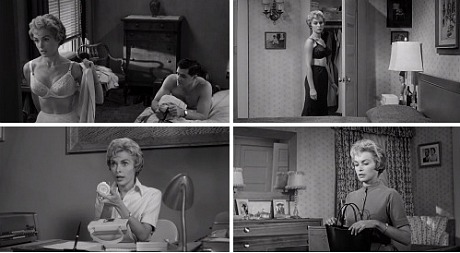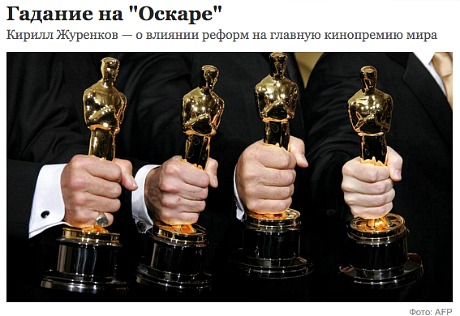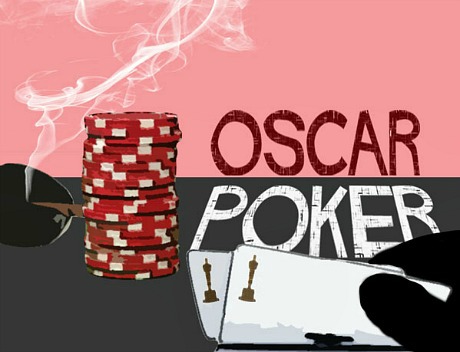How did I miss this earlier? (It posted three weeks ago.) I’m a heh-heh LQTM guy but two or three of these bits (“Bring in the Martian”) provoked an audible “hah-hah”. Hat tip to co-creators Jeff Ayars, the guy who plays Leo, and Dan Rosen, whose Inarritu imitation is fairly on the money. I’m recalling a parody-of-Oscar-moments reel that was shown on the ’97 Oscar telecast (Jerry Maguire was one of the lampooned films), created/instigated by then-host Billy Crystal. The tone of the Ayars-Rosen piece is a little meaner than the Crystal parodies, but it’s not that different.
I Strangely Never Absorbed This Until This Morning
Roughly a year ago Film Fatale posted the following: “In the opening scene of Psycho, Marion Crane (Janet Leigh) is wearing a white bra because director Alfred Hitchcock wanted to show her as being ‘angelic’. After she has taken the money, the following scene has her in a black bra because now she has done something wrong and evil. Similarly, before she steals the money Marion has a white purse; after she’s stolen the money her purse is black.”
This isn’t anyone’s idea of a primal, earth-shaking observation, but the white-black thing never specifically penetrated before today, and all these years I thought I had Psycho sussed out six ways from Sunday. Incidentally: The $40,000 that Leigh steals in this 1960 film comes to $323,391.00 and change in today’s currency. (Martin Balsam‘s Arbogast: “Someone always sees a girl with $323,000 dollars.”) Also: That old vulgar codger who comes on to Leigh in that early workplace scene was exactly right — money really and truly does buy off unhappiness. Because the lack of a decent income always opens the floodgates to sorrows and miseries.

Judge Dread
This Batman vs. Superman: Dawn of Justice trailer played the other day before an Arclight showing, and it took only seconds before I began to feel the poison eggs hatch and liquify and spread through my system. Batman is furious at Superman for half-destroying Gotham during that 80-minute slugfest with General Zod? My loathing for Zack Snyder is much deeper in the blood. To me he’s the new anti-Christ — the Michael Bay virus squared. Feel this trailer, grapple with it. It doesn’t tell you exactly what the film is going to be in all of its manifestations, of course, but the general impression is ummistakable. I’m actually presuming that the first half will be semi-tolerable — it’s that last wham-bang third that I’m dreading.
The only element I’m looking forward to is Jesse Eisenberg‘s performance as Lex Luthor. The rest is going to be toxic.
I don’t care how musclebound he is or how much hardware he has at his disposal — Ben Affleck‘s caped mortal can’t duke it out with Henry Cavill‘s Superman, period. The concept has always been absurd. It’s not the superhero genre (I’m a serious fan of the two Captain America films as well as Ant-Man) but Snyder…Snyder is a huge problem.
Then again I might initially miss out, which is fine with me as I really don’t want this movie in my head. Dawn of Justice opens on Friday, 3.25, but I’ll be out of the country from 3.16 through 3.27, and I’m guessing that Warner Bros. won’t show it to non-fanboys until the all-media screening, which, given the Snyder-hate factor, will probably happen three or four days earlier — Monday, 3.21 or Tuesday, 3.22. If Warner Bros. is extra confident they might have the all-media the previous week, but it would have to be on Monday, 3.14 or Tuesday, 3.15, for me to attend.
Slocombe’s Legacy
Widely respected dp Douglas Slocombe has passed in London at age 103. Slavish editors and obit writers have highlighted the almost anecdotal fact that he shot three of Steven Spielberg‘s Indiana Jones films — Raiders of the Lost Ark (’81), Indiana Jones and the Temple of Doom (’84) and Indiana Jones and the Last Crusade (’89). Please. Slocombe’s finest work was captured in three classic Ealing films — Kind Hearts and Coronets (1949), The Man in the White Suit (1951), The Lavender Hill Mob (1951) — as well as in John Huston‘s Freud (’62), Joseph Losey‘s The Servant (1963), Anthony Harvey‘s The Lion in Winter (1968), Ken Russell‘s The Music Lovers (’70), The Sailor Who Fell from Grace with the Sea (’76), Fred Zinnneman‘s Julia (1977), Never Say Never Again (1983) and Lady Jane (’86).
I Can’t Be The Only One
The famous Tail of the Pup hot-dog stand was in business in two West Hollywood locations — 311 North La Cienega Boulevard and 329 North San Vicente Boulevard — between 1946 and 2005. I was most familiar with the San Vicente location, and I’m telling you that each and every time I pulled up to order a dog I had the exact same thought. I’m debating how I should share this. I guess I’ll just man up and spit it out. I’m sorry but the hot-dog sculpture that more or less comprised the stand looked — this is going to sound vulgar but I’m just reporting an impressionistic fact — like a fat guy with a mustard-smeared ass attending to #2. You’re not going to tell me I was the only one.


I had to get a new passport five or six weeks ago. It may sound funny but saying goodbye to the old one made me feel a little sad. This guy has been with me for nine well-travelled years.
Wild Child, Dragon Pally, Mellow Redford, Bryce Dallas Howard Without Heels
I would normally hate any film that seems to be aimed at kids and families, but Pete’s Dragon (Disney, 8.12.16) might not be too bad. I’m saying this because it’s been directed by David Lowery, who impressed everyone big-time with Ain’t Them Bodies Saints. Let’s just leave it there for now.
Major Malick Title-Change Eureka — Call His Next Film Wait List Rather Than Weightless
A light went on as I watched the end of this Santa Barbara Film Festival red-carpet interview (captured two weeks ago) with Knight of Cups producer and longtime Terrence Malick enabler Sarah Green. When Green is asked about her upcoming projects she mentions Malick’s Weightless and right away I said to myself, “Wait…what if they called it Wait List instead?” Think about it: If Weightless is anything like To The Wonder and Knight of Cups (and how could it not be?), people are going to use the associations in that word (airy-fairy, meandering, lacking in substance, cinematic helium) to beat the film over the head. But Wait List sounds cool — an existential cousin of No Exit. “All right, sir, you’re on the wait list for the 9:30 pm flight to Oakland.” Is “Oakland’ a figure of speech? Where exactly is the plane bound? And who’s the pilot? Is Wait List some kind of mystical allusion to the fact that we’re waiting to die? On a scale of 1 to 10, Weightless is a 3 and Wait List is at least an 8 if not an 8.5. Incidentally: Listen to the Stepford wife voice of the woman asking Green the questions. She sounds like an SNL comedienne pretending to be a Barbie doll.
Old White Lefties Are in Spotlight’s Corner — A Possibly Signficant Factor in Best Picture Showdown
I’m assembling a little assessment piece about the Best Picture showdown between The Revenant and Spotlight (don’t kid yourself — The Big Short is in third place), and a few minutes ago I asked several industry friends for any input they could offer — qualifications, agreements, arguments. Voting isn’t over, remember, until tomorrow afternoon at 5 pm, and I’m betting that a lot of people are on the fence about this. It’s been that kind of year, as we all know.
The pro-Spotlight argument is that the old white lefty contingent (60-plus actors, slightly doddering, somewhat resentful if not seething about the Academy’s rule change, inclined to push back…Ed Asner, Diane Ladd, Connie Stevens, Marty Landau…that crowd) are, I’m hearing, squarely in Spotlight‘s corner.
And most of their voices haven’t been heard, really, except by way of SAG’s ensemble award, which of course went to Spotlight.
The rallying cry is “those of you who are pissed about the new Academy rules, have your voice heard by voting for Spotlight.”
I am nothing if not a staunch Revenant guy. I’ve seen it five times, and I worship Ryuichi Sakamoto‘s score. I’ve heard that The Revenant needs to make $425 to $450 million to break even, and yet it seems to be safely on the way to that. It’s been doing so well all over — it’s the risk-and-success story of the year. All those awards (Golden Globes, BAFTA, DGA) and all that dough.
But my journalist heart-of-hearts belongs to Spotlight. And you know that the classic surprise happy ending on 2.28 would be if Spotlight takes the prize.
If Spotlight doesn’t win…well, okay. At least the Open Road team gave it the old college try, everyone gave it a good run, and the film is certain to double up on that revenue on home video. Everyone involved can be proud of Spotlight being at least the #2 choice among the three Best Picture finalists at this stage in the game.
“The Revenant has it in the bag” narrative stems from three things, I’m told — the industry consensus awards (DGA and BAFTA awards for Revenant/Inarritu, the PGA not being a Revenant win, the SAG ensemble being for Spotlight), the blogaroonie narrative & the massive ad buys by the Fox/Revenant team.
Ridley Scott Offered A Fair & Honest Explanation — You Can’t Bankroll Big Films Without Int’l Marquee Names
Last night John Oliver‘s Last Week Tonight ran a satirical video essay on the #OscarsSoWhite controversy. Clever and funny (“This guy is The Last Samurai?”), but it still sidesteps Ridley Scott‘s excerpted rationale about financing big-budget movies, to wit: “It’s hard to raise financing when my lead actor is Mohammed so-and-so from such-and-such.” The audience groaned at the Scott quote, but it is hard to raise financing without strong marquee names. The first difficulty with Exodus: Gods and Kings was the fact that it wasn’t very good, but it would have been far less annoying if a charismatic Middle-Eastern actor had played Ramses instead of Joel bane-of-my-existence Edgerton. And yet financiers would have certainly said “no” if Scott had insisted on casting a charismatic Middle-Eastern actor as Moses instead of Christian Bale.
Russian Penetration
Last week I was interviewed about the Oscars by Kirill Zhurenkov, reporter for the Russian daily Kommersant. The piece was posted today. The digital English translation is crude. For those who reference that version there’s a quote attributed to me about the OscarsSoWhite brouhaha that needs clarifying. Here’s what I actually said: “The Academy’s decision to take away voting priveleges from older, less active members in order to gradually assure a more diverse membership resulted in a lot of anger amongst the 60-and-over crowd, who felt they were being tarnished as racists because of their age. But let’s be honest — older people are always less receptive to new social currents and developments.”


Poker Picker Upper
Sasha Stone and I…what can I say? Among our topics: (a) What it’s like to attend the Oscars with the wrong kind of dress and unnecessary heels, (b) How it isn’t necessarily a Revenant slamdunk for Best Picture — The Big Short or Spotlight could still eek out a win, (c) The end of Bernie & the triumph of Hillary, (c) What Oscar parties have we been invited to? Just a nice Sunday morning chat. Again, the mp3.

Quarter of A Century? Makes a Guy Think.
Remember M.C. Hammer? Does M.C. Hammer remember M.C. Hammer? On 11.22.16 Barry Sonnenfeld‘s The Addams Family will celebrate its 25th anniversary. A sizable hit by any yardstick (it cost $30 million, made $191 million) but I can’t remember anything about it. No lines or bits…nothing. (Here are some reviews.) And yet I can remember loads of material from Beetlejuice. All I can summon are images of Chris Lloyd‘s Uncle Fester — his expressions, brown monk cloak, bald head, etc.

